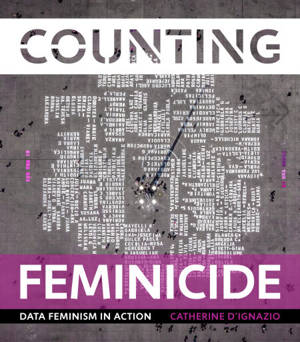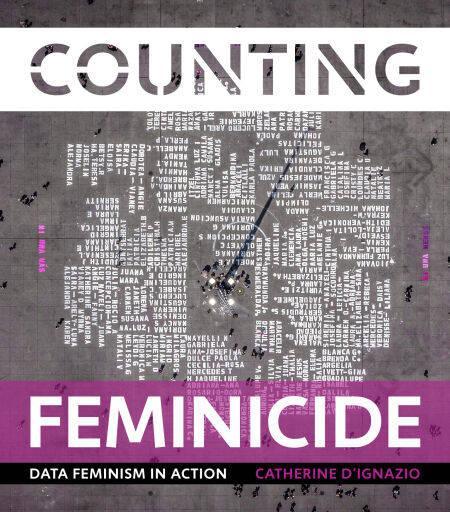
- Retrait gratuit dans votre magasin Club
- 7.000.000 titres dans notre catalogue
- Payer en toute sécurité
- Toujours un magasin près de chez vous
- Retrait gratuit dans votre magasin Club
- 7.000.0000 titres dans notre catalogue
- Payer en toute sécurité
- Toujours un magasin près de chez vous
34,45 €
+ 34 points
Format
Description
Why grassroots data activists in Latin America count feminicide—and how this vital social justice work challenges mainstream data science.
What isn’t counted doesn’t count. And mainstream institutions systematically fail to account for feminicide, the gender-related killing of women and girls, including cisgender and transgender women. Against this failure, Counting Feminicide brings to the fore the work of data activists across the Americas who are documenting such murders—and challenging the reigning logic of data science by centering care, memory, and justice in their work. Drawing on Data Against Feminicide, a large-scale collaborative research project, Catherine D’Ignazio describes the creative, intellectual, and emotional labor of feminicide data activists who are at the forefront of a data ethics that rigorously and consistently takes power and people into account.
Individuals, researchers, and journalists—these data activists scour news sources to assemble spreadsheets and databases of women killed by gender-related violence, then circulate those data in a variety of creative and political forms. Their work reveals the potential of restorative/transformative data science—the use of systematic information to, first, heal communities from the violence and trauma produced by structural inequality and, second, envision and work toward the world in which such violence has been eliminated. Specifically, D’Ignazio explores the possibilities and limitations of counting and quantification—reducing complex social phenomena to convenient, sortable, aggregable forms—when the goal is nothing short of the elimination of gender-related violence.
Counting Feminicide showcases the incredible power of data feminism in practice, in which each murdered woman or girl counts, and, in being counted, joins a collective demand for the restoration of rights and a transformation of the gendered order of the world.
What isn’t counted doesn’t count. And mainstream institutions systematically fail to account for feminicide, the gender-related killing of women and girls, including cisgender and transgender women. Against this failure, Counting Feminicide brings to the fore the work of data activists across the Americas who are documenting such murders—and challenging the reigning logic of data science by centering care, memory, and justice in their work. Drawing on Data Against Feminicide, a large-scale collaborative research project, Catherine D’Ignazio describes the creative, intellectual, and emotional labor of feminicide data activists who are at the forefront of a data ethics that rigorously and consistently takes power and people into account.
Individuals, researchers, and journalists—these data activists scour news sources to assemble spreadsheets and databases of women killed by gender-related violence, then circulate those data in a variety of creative and political forms. Their work reveals the potential of restorative/transformative data science—the use of systematic information to, first, heal communities from the violence and trauma produced by structural inequality and, second, envision and work toward the world in which such violence has been eliminated. Specifically, D’Ignazio explores the possibilities and limitations of counting and quantification—reducing complex social phenomena to convenient, sortable, aggregable forms—when the goal is nothing short of the elimination of gender-related violence.
Counting Feminicide showcases the incredible power of data feminism in practice, in which each murdered woman or girl counts, and, in being counted, joins a collective demand for the restoration of rights and a transformation of the gendered order of the world.
Spécifications
Parties prenantes
- Auteur(s) :
- Editeur:
Contenu
- Nombre de pages :
- 392
- Langue:
- Anglais
Caractéristiques
- EAN:
- 9780262378000
- Date de parution :
- 29-04-24
- Format:
- Ebook
- Protection digitale:
- Adobe DRM
- Format numérique:
- ePub

Les avis
Nous publions uniquement les avis qui respectent les conditions requises. Consultez nos conditions pour les avis.






